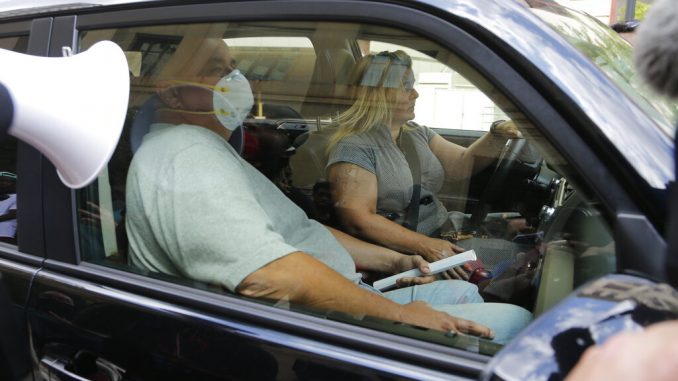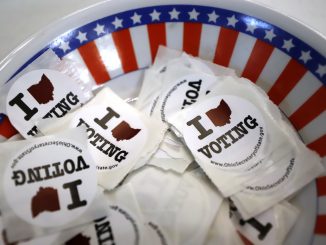
COLUMBUS, Ohio — The arrest July 21 of Ohio’s House Speaker Larry Householder and four associates in a $60 million federal bribery case has upended both politics and policy-making in Ohio. The Ohio House removed Householder from his post Thursday in a unanimous, bipartisan vote, the first in state history to expel a speaker from the job. Householder retains his legislative seat for now. It remains to be seen how the scandal will impact November’s high-stakes presidential election. Here’s a look at what we know so far:
HOW BIG IS THIS?
Householder, of rural Perry County, is alleged to be at the top of what prosecutors call the largest money-laundering scheme in state history, and the first in the Southern District of Ohio to involve a racketeering charge against a public official. FBI agents continue to knock on doors across the state. Investigators say Householder and his associates received $60 million funneled through a network of secret accounts in exchange for passing a roughly $1 billion nuclear plant bailout bill last year and thwarting a subsequent repeal effort.
HOW IS POLITICS BEING AFFECTED?
Politicos in both parties are scrambling for position ahead of November’s high-stakes presidential election. Republicans are distancing themselves from Householder and the other defendants, including former Ohio Republican Chairman Matt Borges, while Democrats are working to explain why they provided key votes to elect Householder speaker and pass the bailout bill. Nine representatives abstained from Thursday’s ouster vote — two speaker candidates and seven others.
WHO ELSE WAS ARRESTED?
Besides Householder and Borges, those arrested were: Jeffrey Longstreth, a long-time Householder political adviser; Neil Clark, a veteran Statehouse lobbyist described as Householder’s political “hit man”; and Juan Cespedes, another lobbyist described as a “key middleman.” A nonprofit called Generation Now is also charged as a corporation. All five individuals were indicted Thursday, each charged with a single count of racketeering. Borges’ attorney calls the accusations against him “wrong and unfortunate.” Lawyers for the others haven’t commented on the indictment.
HOW DID THE SCHEME WORK?
Generation Now was the conduit for the money moving from an unidentified “Company A” to what’s dubbed the “Householder Enterprise,” the complaint alleges. Prosecutors say the money was used to boost Householder’s campaign, to elect a slate of candidates who would support his bid for speaker and then for bribes that secured needed votes. The money was also used to buy inside information that helped sink the bailout repeal effort, to bribe or intimidate petition circulators for that effort, and to hire and tie up outside signature-gathering firms so they couldn’t be hired to help, the complaint said.
DID IT GO BEYOND POLITICS?
Yes, according to prosecutors, the men also personally benefited from the scheme. Householder received about $500,000, they say — including money he used to settle a lawsuit and pay the legal fees and money to maintain a house in Naples, Florida.
WHAT COMES NEXT?
With Householder out of the speaker’s chair, the House must now elect a new speaker. State Reps. Bob Cupp and Jim Butler, who was Householder’s No. 2, are both in the running. Lawmakers of both parties also have proposed legislation that would repeal the nuclear plant bailout law, House Bill 6.



